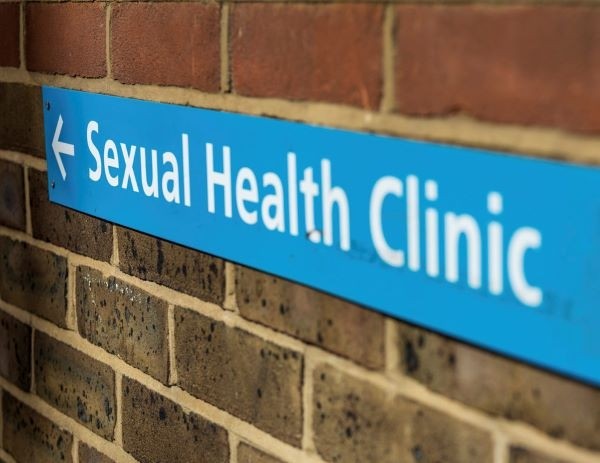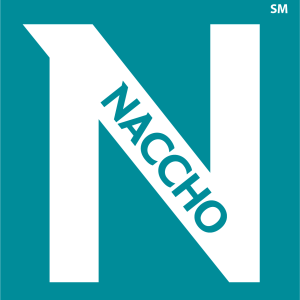Testing for sexually transmitted infections (STIs) has dropped dramatically during the COVID-19 pandemic as both clients and providers seek to maintain social distancing measures. However, with rising rates of STIs and related health care costs, STI and other clinics across the U.S. urgently need to increase testing and treatment, while minimizing the impact on staff and systems. To address these needs, clinics have responded in a variety of innovative ways, including implementing express STI services. Express STI services refer to triage-based STI testing without a full clinical examination. NACCHO’s new report shows that express STI services increase clinic capacity, reduce time to treatment, and reduce visit time, therefore making them an important tool for increasing access and testing while maximizing available resources.
With funding from the CDC’s Division of STD Prevention (DSTDP), NACCHO and Cardea Services engaged seven sites in a multi-jurisdiction data collaborative as part of the STI Express Initiative, an ongoing NACCHO project launched in 2018. The data collaborative, which convened in April 2019, was designed to increase the evidence base for express STI clinical visits and support clinics in quality improvement efforts to strengthen, scale-up, and evaluate established STI express models.
To mark the end of STD Awareness Week, NACCHO is thrilled to release the final report from this project alongside an accompanying considerations guide and billing fact sheet for implementing express STI services. The report, “Evaluating Sexually Transmitted Infection Express Services: Findings from a Multi-Site Data Collaborative,” compiles findings about the impact of express STI services on patient characteristics and satisfaction; clinic capacity and time; STI testing and treatment outcomes; and cost. Meanwhile, the guide “Implementing Express STI Services: Considerations and Lessons Learned” details multiple factors and real-life lessons learned that clinics should consider when designing and implementing an express STI model.
What are express services?
We define STI express services as triage-based STI testing without a full clinical examination. Express services, also known as “fast-tracking,” are often associated with technology and automation and can reduce visit time, decrease time to treatment, and free up provider time; empower use of staffing models that utilize top of license strategies; enable self-collection of swabs; and increase opportunities to implement in diverse settings. During COVID-19, multiple clinics have opted to implement express services as a method to reduce promote testing while maintaining social distancing.

Express STI Services: Lessons Learned
The findings from the STI Express Data Collaborative broadly show that STI express services:
- complement other clinical services and may be implemented across diverse settings and via multiple strategies;
- may support EHE initiatives;
- increase clinic capacity to see patients;
- offer increased opportunities for HIV/STI testing and PrEP consultation;
- and receive high levels of patient satisfaction.
There are many reasons to consider implementing an express STI model, such as attracting new patients, increasing clinic capacity, and improving clinic flow. The report highlights multiple findings from evaluating seven clinics providing express STI services that demonstrate the utility of this model. For example, express STI services were found to reach more LGBTQ+ clients and more clients that report high-risk substance use, as well as a higher proportion of new patients than non-express. Express visits were also significantly shorter than non-express and increased clinic capacity, allowing asymptomatic patients to complete testing while freeing time for providers to meet more symptomatic patients.
The report also found that express patients received HIV and STI testing more frequently than non-express patients, and that while express patients were less frequently on PrEP, they were more frequently provided with PrEP counseling. This opportunity to expand HIV prevention activities show that express STI models may support local HIV planning efforts, including the Ending the HIV Epidemic initiative, which encourages the integration of HIV testing and prevention services with similar services for STIs and substance use.
Learn More
This report and considerations guide are the culmination of analysis from seven clinics in the STI Express Data Collaborative; two Communities of Practice for clinics implementing or considering express models; and three in-depth site visit evaluations. The outcomes of the STI Express Data Collaborative makes clear that while there is no one-size-fits-all approach to express STI services, this model is an important tool to efficiently increase access to testing in existing STI or other clinics.
To learn more about the STI Express Initiative and access sample resources from participating sites, please visit our website. For inquiries, contact Samantha Ritter, Director of Maternal, Child, and Adolescent Health, and Julia Zigman, Program Analyst for HIV, STIs, and Viral Hepatitis.




